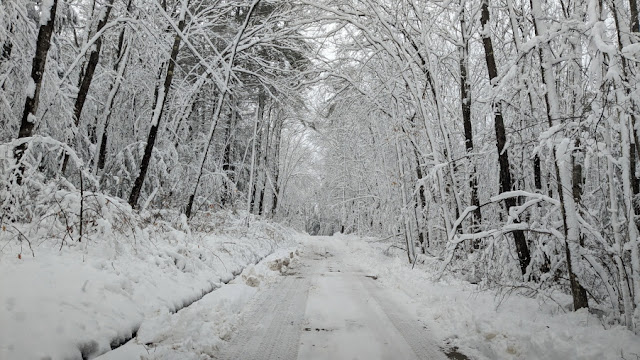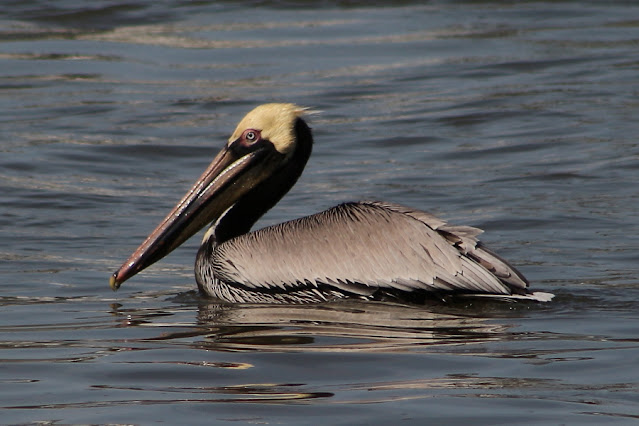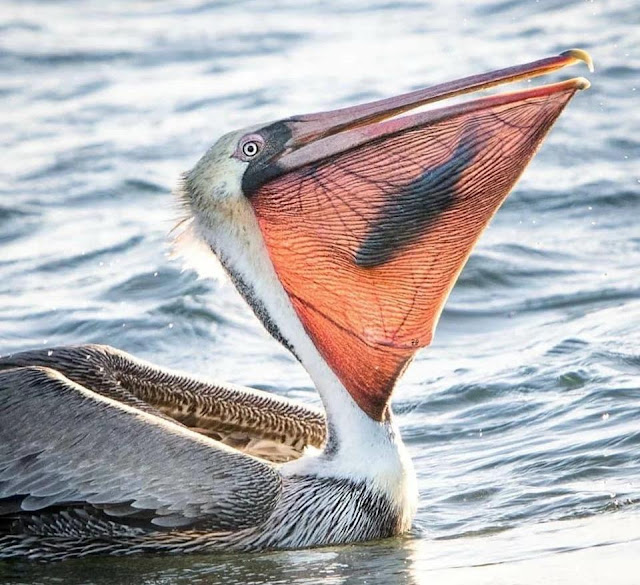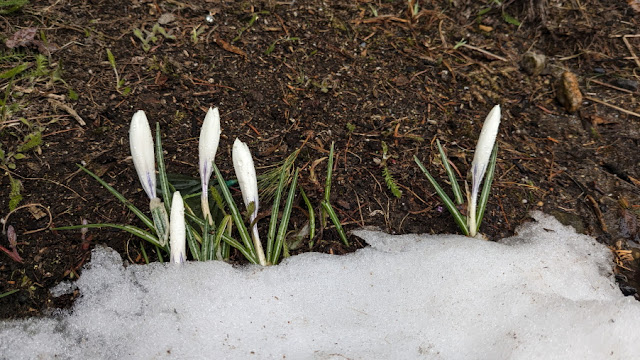We spent the past week in South Carolina where it was nice to see something other than snow in the tree branches. When we returned to the lake on Thursday night we found quite a change had taken place in the days we were gone. Not only was all the snow gone, but the lake was almost completely open. We were greeted the first night home with the call of a loon drifting over the lake. The next morning was dull and gray - a perfect day if you're a duck - and we were immediately treated to a smorgasbord of ducks on the lake including mergansers, wood ducks, mallards, black ducks, and these ring-necked ducks which are always a treat to see.
 |
| Ring-necked Duck. |
Later in the day a pair was having an afternoon siesta near the shoreline.
 |
| Sleeping with one eye open at 1:00pm. |
I was careful not to disturb them, but eventually they woke up and perked up a bit.
When they suddenly leapt out of the water, I thought I had startled them.
But in fact, their flock, which was hidden around a point of land, had taken flight, and they were just heading off to catch up with their friends.
 |
| Can you see the mallard on the rock near shore? |
Another early migrant was an Eastern Phoebe.
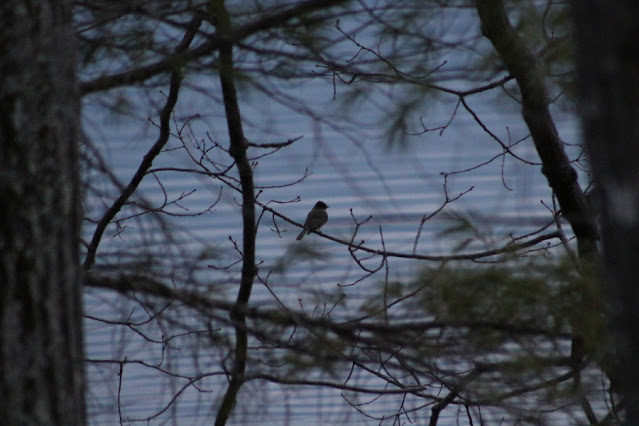 |
| Eastern Phoebe perched over the lake, hoping the insects are out soon. |
And no surprise, with the ice out, the beavers are back on their evening cruises across the lake in search of food and timber for building supplies.
There were branches nibbled clean of their bark showing they had been on shore, and sure enough, come night fall, one arrived to feast.
That's one big beaver that seems to have stored up plenty of winter food, but nonetheless is looking for something fresh to eat.
Now, South Carolina. Our hostess arranged for perfect weather in the mid 80's all week and not a drop of rain. A fun part of visiting new areas is finding unfamiliar things to investigate, such as these blossom-type items scattered all over the ground in a Low Country forest. I figured they were pollen-producing blossoms of a tree and it didn't take long to identify them as Sweetgum.
 |
| The dried up, brown spikey-thing (a "gumball") tucked into the leaf litter on the left was a helpful clue. |
Imagine how much pollen can be expelled from all those blossoms.
 |
| Male flowers of the Sweetgum tree. |
Not far away at food-serving facility beside a lagoon I saw a large bird we don't have in New England but is easy to identify.
 |
| A Black Vulture looks for easy pickings. |
Black Vultures don't venture north of Massachusetts, but maybe soon they'll make their way up here like the Red-bellied woodpeckers and winter Bluebirds have.
On the Isle of Palms we saw the usual culprits such as Laughing Gulls, Egrets, and Boat-tailed Grackles, but also a new bird for me, Willets.
 |
| Willets foraging in the surf on Isle of Palms. |
It took a bit for me to recognize them as they were wearing winter or immature plumage. (Thanks RB for the confirmation!)
Along Shem Creek in Mount Pleasant, a pair of Barn Swallows was dashing around over the marsh collecting insects, but then perched on a railing just for our enjoyment.
 |
| Barn Swallows at Shem Creek. |
There were also pelicans gliding low over the creek watching the fishing and shrimp boats for cast-off fish.
Over at Folley Island we saw Pelicans performing their freefall crash into the Atlantic Ocean.
 |
| Searching for targets. |
No trip to the Low Country would be complete without a visit to a stand of Live Oaks with their Spanish Moss.
This is "Oak Alley" at Boone Hall Plantation which also provides much history of the slave trade and life in South Carolina. It's worth a visit, for the history lesson as well as the flowers.
 |
| Some of the gardens in front of the plantation Mansion. |
And then, after a beautiful trip through the Shenandoah Valley where we drove along miles of Red Buds and flowering trees, watching summer return to late winter, we were back in New Hampshire. And yesterday, mother nature made sure we knew that as we woke up to this on Saturday morning.
Back to snow in the trees - we should have stayed down south another week! Thanks for a great visit!









